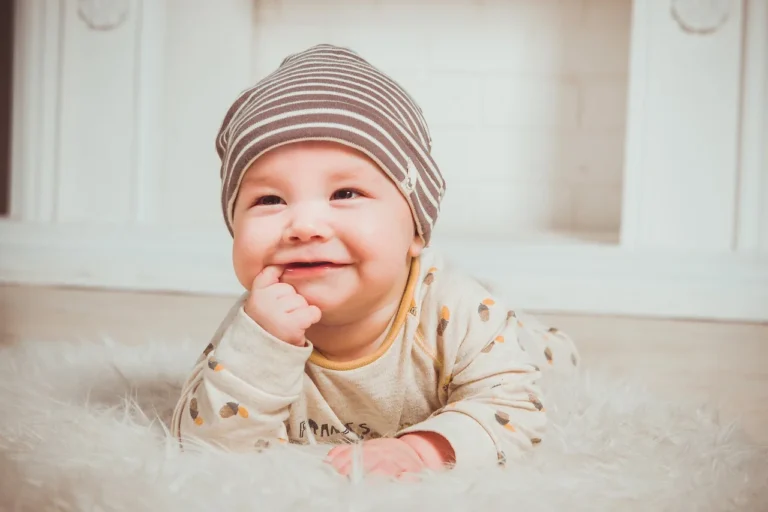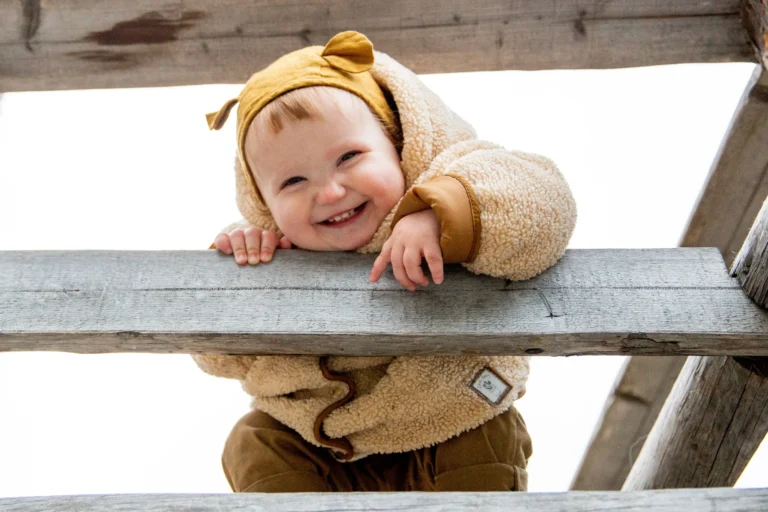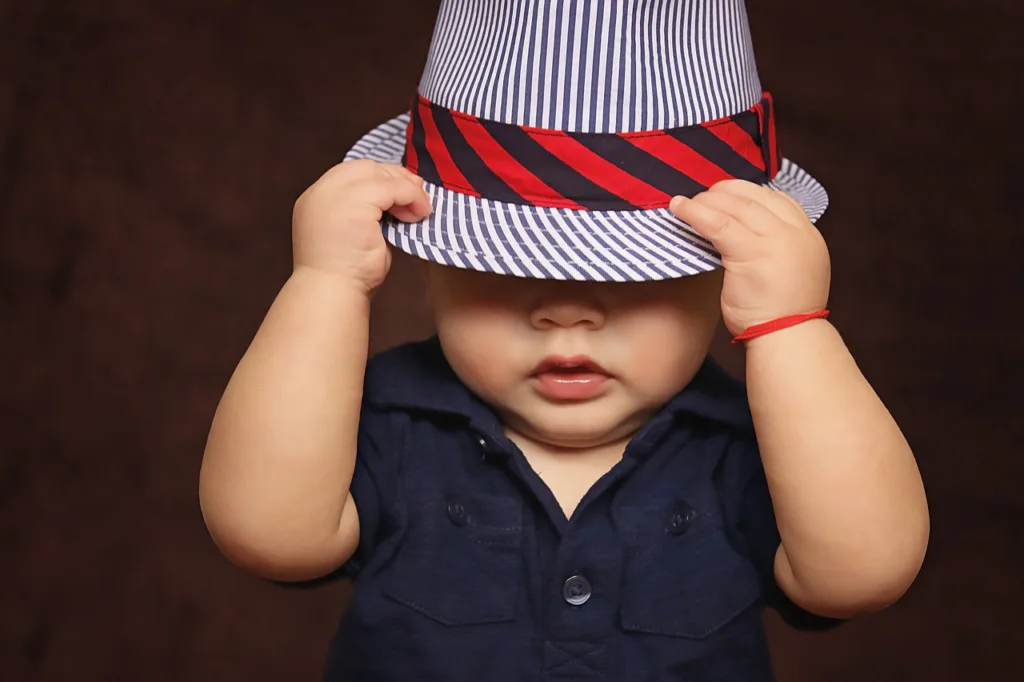When Do Babies Start Smiling? Understanding the Joyful Milestone
When it comes to parenting, every little milestone in a baby’s development brings immense joy and excitement. One of the most heartwarming moments for parents is when their baby starts smiling. A baby’s smile is an endearing and captivating expression that can melt hearts and create a deeper connection between parents and their little ones. But when exactly do babies start smiling, and what does it signify? In this article, we will explore the timeline of smiling milestones, factors that influence smiles, the significance of genuine smiles, and how smiling plays a role in communication and bonding.
Table of Contents
The Significance of a Baby's Smile
The smile of a baby holds tremendous significance in the lives of parents and caregivers. It is a precious and heartwarming expression that brings immeasurable joy and elicits a sense of deep connection. A baby’s smile is more than just a charming gesture; it is a powerful tool for communication, emotional bonding, and overall well-being.
When a baby smiles, it has the power to light up a room and melt hearts. It is a universal language that transcends words, allowing parents and caregivers to understand and respond to their baby’s needs and emotions. The significance of a baby’s smile can be understood through the following points:
1. Emotional Connection: A baby’s smile is a powerful means of establishing an emotional connection with their parents or caregivers. It signifies trust, love, and security. When a baby smiles, it conveys a sense of happiness and contentment, reassuring parents that their little one is in a positive state of mind.
2. Positive Reinforcement: A baby’s smile acts as positive reinforcement for parents and caregivers. It affirms their efforts in providing love, care, and attention. The sight of their baby’s smile fills them with a sense of accomplishment and validates their role as nurturers.
3. Strengthening the Parent-Child Bond: Smiling creates a profound bond between parents and their baby. It fosters attachment, nurturing a sense of belonging and security. When a baby smiles, it invites interaction and engages parents in reciprocal smiles, laughter, and play, further strengthening the bond between them.
4. Communication and Expression: Before babies develop the ability to speak, smiles become their primary mode of communication. A smile can convey a range of emotions such as happiness, pleasure, excitement, and even a desire for social interaction. It enables babies to express their needs and emotions, allowing parents to respond accordingly.
5. Positive Influence on Mood: The sight of a baby’s smile has a remarkable impact on the mood and well-being of those around them. It has the power to uplift spirits, reduce stress, and create a positive atmosphere. A baby’s smile can brighten even the gloomiest of days and bring joy to everyone in their presence.
Developmental Milestones: Early Smiles
Reflex Smiles
In the early weeks of a baby’s life, around the first month, you may notice your baby making small, spontaneous smiles. These smiles are known as reflex smiles or newborn smiles. They occur as a result of involuntary muscle movements and are not directly related to emotions or social interaction. Reflex smiles typically fade away after the first few weeks as a baby’s facial muscles develop further.
Social Smiles
Around the age of 6 to 8 weeks, babies start exhibiting social smiles. Unlike reflex smiles, social smiles are intentional and are typically directed towards familiar faces, such as parents or caregivers. These smiles are an early indication that your baby is beginning to engage socially and recognize familiar faces. Social smiles are often accompanied by cooing and other vocalizations, which further enhance the bond between parent and child.

Smiling Milestones: Age Range
First Few Weeks
During the first few weeks of life, newborns may occasionally produce reflex smiles. These smiles are generally brief and fleeting, often occurring during sleep or when they experience certain physiological sensations.
One to Two Months
Between the ages of one to two months, babies’ smiles become more frequent and intentional. They may start smiling in response to external stimuli, such as gentle touches, soothing voices, or visual cues. Parents and caregivers often find these early smiles incredibly rewarding and reassuring.
Two to Three Months
As babies enter the two to three-month mark, their smiles become even more consistent and responsive. They begin to recognize familiar faces and respond with broad smiles, accompanied by joyful sounds. At this stage, smiling becomes a powerful tool for establishing connections and expressing happiness.
Factors Influencing Smiling
Biological Factors
Biological factors play a significant role in a baby’s smiling milestones. As babies develop, their facial muscles and neurological pathways mature, enabling them to produce intentional smiles. Additionally, the release of endorphins and other feel-good hormones during positive interactions contributes to the frequency and duration of smiles.
Environmental Factors
The environment in which a baby grows and interacts also influences their smiling behavior. Warm and responsive caregiving, positive social interactions, and a nurturing atmosphere contribute to a baby’s emotional well-being, increasing the likelihood of frequent and genuine smiles. Creating a loving and stimulating environment can foster early social connections and emotional development.
Recognizing Genuine Smiles
It’s essential for parents to be able to distinguish between reflex smiles and genuine smiles. Genuine smiles, also known as Duchenne smiles, involve the eyes as well as the mouth. The whole face lights up, and the eyes squint or produce “crow’s feet” wrinkles at the corners. These smiles are more likely to occur in response to social cues, positive interactions, and feelings of happiness or comfort.

Encouraging Smiles and Bonding
Parents play a vital role in nurturing their baby’s smiles and strengthening the parent-child bond. Engaging in eye contact, talking, singing, and playing with your baby can elicit smiles and laughter. Responding promptly to their needs and providing a secure and loving environment creates the foundation for positive social interactions, fostering a deeper connection and overall well-being.
Smiling as Communication
Smiling serves as an essential form of communication for babies, even before they can express themselves verbally. A baby’s smile can convey happiness, contentment, or even a desire for social interaction. It acts as an invitation for social engagement and reinforces the caregiver’s role in providing comfort and support.
Common Concerns
Delayed Smiling
While the age range for smiling milestones varies from baby to baby, some parents may express concern if their baby hasn’t smiled by a certain age. It’s crucial to remember that all babies develop at their own pace. If you have concerns about your baby’s smiling development, consult with your pediatrician to address any underlying issues or to gain reassurance.
Facial Expressions and Autism Spectrum Disorder (ASD)
Some parents wonder if a lack of smiling or limited facial expressions could be an early sign of Autism Spectrum Disorder (ASD). However, it’s important to note that not all babies who exhibit delayed or atypical smiling patterns will have ASD. If you have concerns about your child’s development, consult with a healthcare professional who can provide guidance and support.
Conclusion
The magical moment when babies start smiling marks an important developmental milestone in their lives. From reflex smiles to intentional social smiles, these expressions hold immense meaning and significance for parents and caregivers. Smiling serves as a powerful communication tool, strengthening the bond between parent and child. By creating a nurturing environment, responding to their needs, and engaging in positive interactions, parents can encourage their baby’s smiles and foster healthy social and emotional development.
Frequently Asked Questions
Yes, premature babies can smile. However, their smiling milestones may align with their adjusted age, considering their premature birth. It’s important to remember that premature babies may have unique developmental timelines, and consulting with healthcare professionals can provide more guidance.
If your baby hasn’t started smiling by three months, it’s recommended to consult with your pediatrician. While most babies begin smiling within this timeframe, every child is different. Your pediatrician can assess your baby’s development and address any concerns you may have.
Engaging in positive interactions, such as talking, singing, and playing with your baby, can encourage more smiles. Creating a nurturing and stimulating environment, being responsive to your baby’s needs, and providing affectionate care can also contribute to more frequent and genuine smiles.
While smiles generally convey positive emotions universally, the interpretation and cultural significance of smiles may vary across different cultures. Some cultures may have specific social cues and norms associated with smiling. It’s important to consider cultural context when interpreting facial expressions.
Smiling is a natural instinct and is considered both innate and learned. Babies are born with the ability to smile reflexively, but as they grow and interact with their environment, they learn to associate smiles with positive experiences and social interactions, further developing their smiling skills.
FOR MORE VALUABLE TIPS BUY OUR PARENTING COURSES AT https://www.kidzoot.com/courses/
CONSULT YOUR PERSONAL PARENTING SOLUTIONS VIA APPOINTINTMENT AT https://www.kidzoot.com/appointment-booking/
Follow Us on Twitter www.twitter.com/kidzootworld

